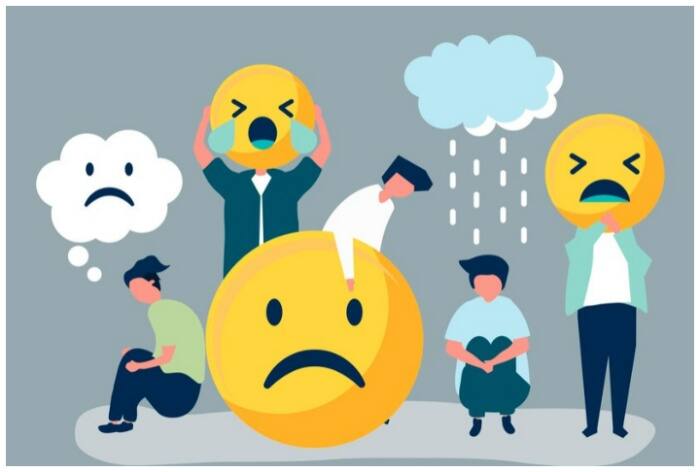What is emotional numbness, a state in which you feel disconnected from everything? 5 ways to deal with this stress
Do you feel disconnected from almost everything? Emotional numbing is a condition that takes a toll on your mental health.
Emotional numbing, also known as emotional anesthesia or emotional numbing, refers to a psychological phenomenon in which a person experiences a reduced ability to feel emotions or a reduced range of emotional responses. A feeling of being disconnected from the world, of being disinterested in everyday activities becomes a common pattern. It is often a protective mechanism that individuals develop in response to overwhelming experiences. In this busy culture and stressful work environment, no amount of self-care can lead to such emotions. Although emotional numbing can provide temporary relief, it can hinder emotional well-being and interpersonal relationships. Here are five ways to deal with this stress:
How can you deal with emotional numbness every day?
- Practice self-care: Engage in activities that promote self-care and emotional well-being. This might include engaging in hobbies you enjoy, spending time in nature, practicing relaxation techniques (such as deep breathing exercises or meditation), journaling, or expressing yourself creatively. Taking care of your physical health by prioritizing regular exercise, adequate sleep and a nutritious diet can also support your emotional well-being.
- Develop supportive relationships: Surround yourself with supportive and understanding individuals who can provide you with a safe space to express your emotions. Share your experiences and feelings with trusted friends, family members, or support groups. Connecting with others who have experienced similar challenges can be particularly helpful in overcoming emotional numbing.
- Express yourself: Start identifying and acknowledging your emotions, even if they feel muted or unfamiliar. Start with small steps, such as engaging in activities that evoke positive emotions or exploring art, music, or literature that resonates with you. Gradually expose yourself to a wider range of emotions over time so that you can experience and process them without judgment or suppression.
- Practice self-compassion: Be patient and kind to yourself throughout the process of dealing with emotional numbing. Understand that healing takes time and that emotions can be complex. Practice self-compassion by treating yourself with understanding, acceptance, and forgiveness. Avoid self-criticism and remind yourself that experiencing a range of emotions is a natural and healthy part of being human.
- Seek therapy or advice: Consider working with a mental health professional, such as a therapist or counselor, who can help you explore and address the underlying causes of emotional numbing. They can guide you through various therapeutic techniques, such as cognitive behavioral therapy (CBT), mindfulness-based approaches, or trauma-focused therapies, to help you reconnect with your emotions and develop healthier coping mechanisms.
It is important to note that managing emotional numbing may require ongoing effort and support. If you find that emotional numbing is having a significant impact on your daily functioning or quality of life, consider contacting a mental health professional for further guidance and support.


